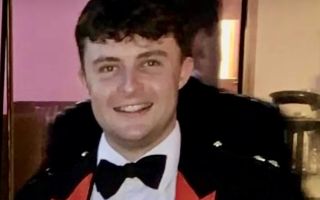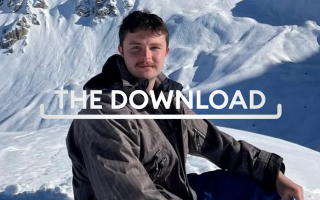UK-trained Ukrainian soldier recalls facing Russian troops who have no idea how to fight
A Ukrainian soldier being trained in the UK has told Forces News some Russian conscripts he has faced on the frontline have no idea how to fight.
He is one of many troops who are in England preparing to return to the frontline, and it comes two years after Russia invaded Ukraine.
Russia has lost an estimated 3,000 tanks in the war, and 300,000 men have been killed or injured.
Twenty-eight-year-old Vladislav says the Russian soldiers they face vary in quality: "It depends on the battle and the place we're fighting for. Sometimes the Russians can send theirconscripts without any experience.
"We fought a whole Russian platoon of conscripts once; they had no idea how to fight and just didn't know what to do when my unit attacked them with two machine-guns."
Thousands of Ukrainian soldiers have received British training on Operation Interflex – the codename for the programme that ensures Ukrainian recruits are ready to return home to continue in their fight against Russia.
The training is for new volunteer recruits who have joined the Armed Forces of Ukraine with little to no previous military experience to teach them the skills required to survive and be effective in frontline combat.
The soldiers will, however, be returning to a battlefield that is becoming increasingly difficult for Ukraine.
There are shortages of men and ammunition, and vital weapons like frontline air defences, which mean it is arguably the most precarious moment of the war so far.
From Bakhmut in the east to Zaporizhzhia in the south, the Russians are on the attack.
Under martial law, every sector of Ukraine is being subsumed into the military.
A mock village has been set up in England's southwest to replicate the unique challenges of urban warfare on the frontline.
The trainees are a mixture of National Guard – Ukraine's public order force – and State border guards. They are in England for five weeks, training to become platoon sergeants.
More than 34,000 Ukrainian troops have now passed through Op Interflex. Most of the trainers are British but they are supplemented by personnel from nine other nations, including Australia, Canada and Sweden.
It is a two-way process – the British Army and other partner nations also learn from the experienced Ukrainian troops about how the Russians fight.
Ukrainian State Border Guard Mykchaylo said: "When I've been in combat, I've not seen that many Russian Kamikaze drones – they mainly use reconnaissance ones for their artillery.
"They have a lot of old Soviet artillery rounds which aren't accurate, the detonators don't work, but they've got a lot of them.
"They can send 50 soldiers to get eliminated, then they send 50 more. They don't even count their casualties. It doesn't matter how many they lose, they've still got more."
As well as learning to fight in trenches and buildings, the course covers the rules of war, battlefield first aid and cyber warfare.
Major Simon Wright, 2nd Battalion, The Royal Regiment of Scotland said: "It's unbelievably meaningful for us all because it's real. There's a real tangible output to our training delivery, so we know that the positive effects we're having can have a positive effect on their people, their individuals and their units back in Ukraine.
"Genuinely, when you meet them all for the first time and listen to their stories, it's very sobering."
While this marks the two-year anniversary of Russia's invasion, for many Ukrainians the war began a decade ago with Vladimir Putin's annexing of Crimea and the Donbas.
2024 is predicted to be the toughest year of the conflict so far.
Russian offensives, ammunition shortages and the uncertainty of a US election all make the lessons learned on Op Interflex vital to Ukraine's survival.









